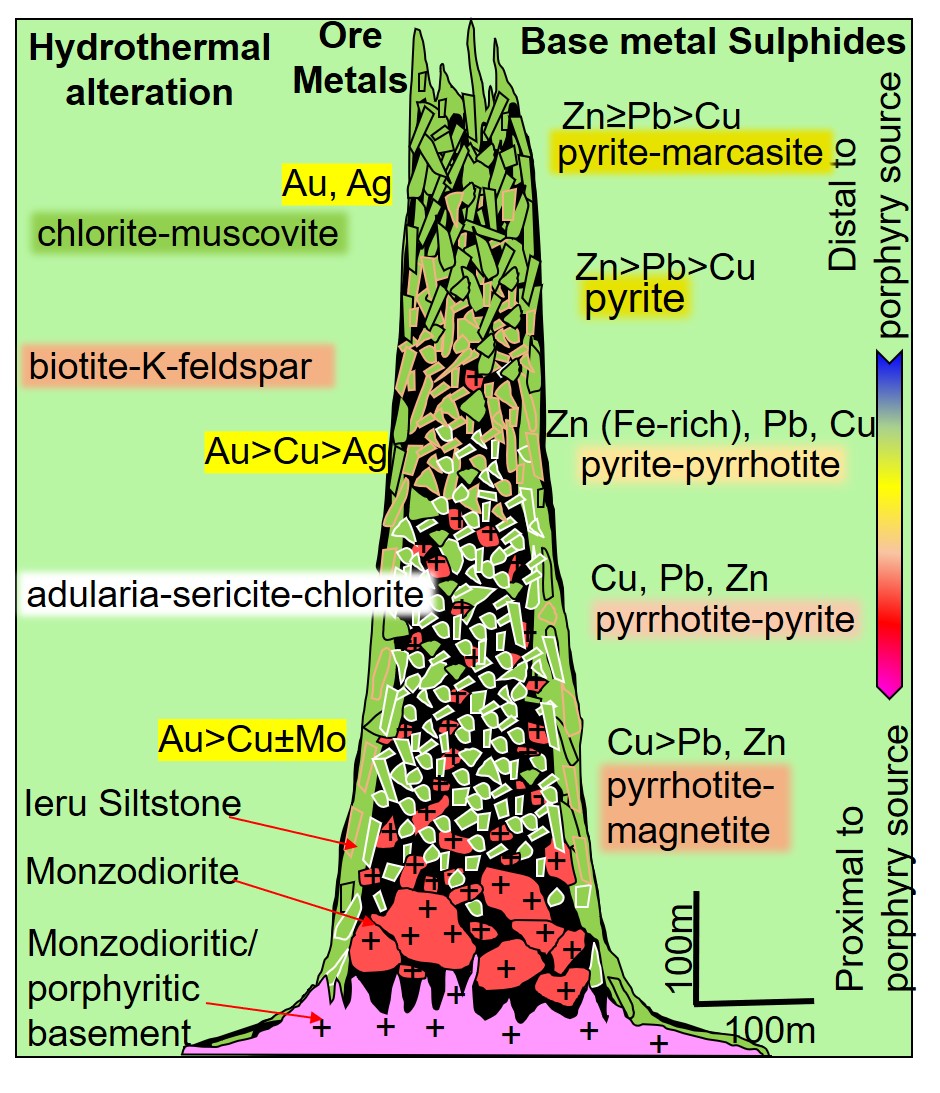
- Start Date:
- 28 Feb 2022
- End Date:
- 30 Sep 2030
- Location:
- Ok Tedi Mine, Papua New Guinea

The New York breccia pipe constitutes a recently discovered (2017) large breccia pipe (400m by >1500m) within 2km of the world-class Ok Tedi porphyry/skarn Cu-Au deposit. This breccia pipe contains significant gold mineralisation, displays hydrothermal alteration zonation, and indicates evidence of shallow epithermal to deeper porphyry-style mineralisation. Further drill testing to date also indicates that the Cu-Au mineralization and the breccia pipe extend deeper (>1500 m) than previously interpreted.
The New York breccia pipe is strongly mineralogically zoned, pyrite-marcasite rich at the top, and at deeper levels, has increasing pyrrhotite±chalcopyrite±magnetite. The hydrothermal alteration zonation at the New York breccia is characterized by crosscutting, intermediate sulfidation epithermal quartz-rhodochrosite-sphalerite-galena-pyrite-pyrrhotite-chalcopyrite-calcite veins. Note that these hydrothermal alteration assemblages are not observed at Ok Tedi. Breccia pipes including those with significant Au mineralization were never documented, nor intersected by diamond core, previously at Ok Tedi. The breccia fragments include different rock types, with variable degrees of hydrothermal alteration, and rounding which indicate significant fragment transport. There are abundant hydrothermal infill minerals (matrix), which appear to form several overprinting stages that are not yet well-defined. In fact, the above mineralogical and textural observations suggest that there may be more than one magmatic, hydrothermal and brecciation event. In addition, the presence of significant Au-Cu mineralization in breccia pipes, both vertically and laterally, not only at New York but also in areas around the Ok Tedi district, especially the nearby Townsville Cu-Au deposit, further suggests significant resources that were never documented, nor understood previously.
The relative and absolute timing, hydrothermal alteration, Cu-Au footprint and the breccia’s genetic relationship to the Ok Tedi deposit remain unknown. In this research project, we want to make a significant contribution to the understanding of mineralised breccia pipes by studying in detail the New York breccia pipe that not only contains significant gold mineralisation, but also shows a close spatial relationship to the world-class porphyry Cu-Au and skarn deposit at Ok Tedi, Papua New Guinea.
Project Coordinator:
PhD student:
Participating Partner Research Orgs: John de Laeter Centre - Curtin University; CODES- University of Tasmania
Funding Agencies: Ok Tedi Mining Ltd, Society of Economic Geologists Student Grant
Industry Participants: Ok Tedi Mining Ltd